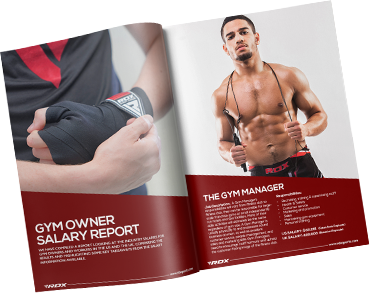Customer feedback is crucial for business growth because it reveals the hidden needs, challenges, and desires of your clients. This insight helps shape your products to target the right emotions and create stronger connections.
Wholesalers and manufacturers must stay informed of changing buying trends and evolving customer demands to stay competitive. By using feedback, businesses can enhance their offerings, better meet customer needs, and stay ahead in the market.
Let’s explore how client feedback can be used by businesses to enhance their product offerings, meet the customers’ needs, and stay ahead of their competition.
Why Customer Feedback is Critical for B2B Retailers and Wholesalers?
Collecting customer feedback is important for B2B retailers so that they can fully understand the nature of the relationship between their business and their clients. A structured feedback process gives a clear picture of all the things that need improvement, things that are performing well, and areas where they need to pay more attention.
B2B is a bit different from B2C with longer and more complicated sales cycles, involving multiple decision-makers. The process is a bit tedious in B2B industry and that is why investing in customer feedback programs is essential. It helps maintain strong relationships and prevents client churn, which is ultimately better than acquiring new customers.
Customer retention costs significantly less than acquiring new clients, and retaining satisfied customers can lead to repeat business. Unlike B2C companies that thrive on volume, B2B relies on close, complex relationships with fewer clients, making feedback richer in quality and more actionable.
When B2B retailers address issues raised in feedback, it shows clients that their concerns are valued and taken seriously. Moreover, customer feedback isn’t just useful for internal improvement. Positive feedback can be turned into testimonials and case studies, demonstrating to prospective clients the tangible benefits of your products or services.
With B2B purchases often involving significant commitments, such as choosing new suppliers or equipment, showcasing these success stories can reassure future customers that they’re making the right choice.
Key Channels to Gather and Analyze Fitness Gear Feedback

As we said and explained above, collecting and analysing feedback from your customers is just indispensable for business improvement. Having said that, we are not going to explain how to get feedback from our customers.
There are several practical methods to gather this feedback and use it to make better product decisions. Below are some of the key channels that can help you get valuable insights into how your products are performing in the market.
1. Direct Sales Interactions
One of the most straightforward ways to collect feedback is through direct interactions with your sales team. Sales representatives are often the first point of contact with gym owners, trainers, and retailers, and they can gather valuable first-hand insights during these conversations.
Whether it’s praise for a well-designed product or negative feedback about certain features, the information collected during sales interactions can give you a better understanding of how your fitness gear is performing in real-world situations.
2. Online Reviews
Another effective way to gather customer feedback on fitness equipment is by staying in touch with online reviews. Whether through your own website, retail partners, or third-party platforms, reviews provide true opinions from end-users.
This can help you identify common themes, both positive and negative, which will inform how your products are perceived by athletes, trainers, and gym owners.
3. Industry-Specific Trade Shows
Trade shows and expos are a great way to gather fitness gear feedback from the people who actually use or sell your fitness gear. These events are a perfect opportunity to meet gym owners, retailers, and industry experts face-to-face. They give you a chance to know their needs and their issues right there, on the spot.
There are no middlemen, or mediums of communication that may alter the information. At such events, you meet your clients in person and get the information first-hand. These are the places where you get the information that’s important to decide what to do to move ahead and how to grow your business by meeting the customers’ demands.
4. Surveys Sent to Gym Owners, Trainers, and Retailers
Surveys are another way to collect targeted feedback. By sending questionnaires to gym owners, trainers, and retailers, you can ask specific questions related to your products.
Surveys can be designed to gather both qualitative feedback (open-ended responses) and quantitative data (ratings, scores), providing a more comprehensive view of your product’s strengths and weaknesses.
5. Leveraging Qualitative and Quantitative Feedback
When it comes to feedback type, you need both qualitative and quantitative feedback. They both have their own significance. Qualitative feedback, like detailed reviews or comments from surveys, gives you information about specific issues or positive features.
At the same time, you need quantitative data to track trends over time and measure the overall satisfaction level of your customers. It is the mix of both types that gives you a balanced view to make informed product decisions.
6. Using Data-Driven Tools to Interpret Feedback
To get full benefits from your fitness gear feedback, it’s important to use data-driven tools that help you analyze the information. Customer feedback software can effectively categories as well as interpret both qualitative and quantitative data. This way you can identify patterns and trends more easily.
With data interpreted and sorted, you can make product decisions that are rooted in solid information and scientific processes rather than guesswork.
Related Article: Boost Customer Engagement & Sales: How Smart Boxing Gear Can Revolutionise Your Business
How to Use Customer Feedback for Product Improvement Strategies

Customer feedback is the best thing for enhancing product offerings. Use it right and you’ll be able to make just the right changes in your fitness business - changes that lead to growth and success. Here’s how you can turn complaints, suggestions, and praise into actual, doable product improvement strategies:
1. Use Complaints to Address Product Flaws
Complaints may sound like bad news, but not in business. They may bring your morale down initially but there is a way of looking at them. You gotta fix your lenses and see them as one of the most valuable types of feedback.
If a significant number of your customers are talking about the same issue, then it is an ISSUE and it needs to be resolved. When you pay attention to complaints and try to realise the root cause of the issue, you can efficiently make adjustments to your product for a better user experience.
2. Use Suggestions to Improve Features
Customer suggestions can be a source of innovation. When users offer ideas for new features or ways to improve existing ones, it’s a sign that they’re invested in your product and want to see it succeed.
Listening to these suggestions can help you identify opportunities to add or refine features, ensuring your products stay competitive and aligned with customer expectations.
3. Use Praise to Strengthen Your Best Features
If negative feedback shouldn’t be ignored, you should not be ignoring positive feedback either. Get to know where you are doing it right with positive reviews and then focus more on those areas and try to be consistent too. Maintain the quality to retain your customers who are appreciative of a certain aspect of your business or service.
4. Adapt Quickly to Stay Competitive
We live in a world that’s moving at a supersonic speed. The market is evolving fast and businesses can’t lag. In this scenario, you need to make improvements fast once you have your customer feedback. Do not sit thinking or procrastinating. Do what needs to be done as soon as possible.
Delayed actions can be lost opportunities. Adapt fast and stay in the game; procrastinate and there are many waiting to take your place.
Benefits of Improving Product Offerings Based on Feedback

Using feedback for improvements is beneficial and we know that now. Here we are explicitly explaining the benefits:
- Boosted Customer Loyalty
Customers feel valued when they feel heard and when they see that their feedback is actually taken seriously. This way you earn loyalty to your brand. Happy and satisfied customers are more likely to return.
- Enhanced Brand Reputation
You build a reputation for being responsive and attentive to customer needs when you are constantly improving your offerings. This positive reputation can give you an edge over your competitors and that means more business opportunities.
- Increased Sales
When you refine your offerings based on real-world feedback, you’re more likely to see an increase in sales because now the products are according to their choice and also because they value your thoughtfulness and the fact that you cared for their feedback and eliminated their issues. Enhancing product offerings in accordance with clients’ feedback is the best thing you can do for better sales and to build long-term customer relationships.
- Stronger Business Relationships
For wholesalers, providing retailers with superior products leads to better stock turnover and stronger relationships. Retailers appreciate having products that meet customer demands, which can lead to long-term partnerships.
- Standing Out in a Competitive Market
In a competitive market, continuous improvement is a survival tactic. This ability to meet changing demands can give you a competitive edge that keeps your business thriving.
Related Article: Expanding Your Reach: Strategies for Global MMA Gear Distribution
Best Practices for Implementing Feedback-Driven Changes
Client feedback utilisation is extremely important for improving fitness gear and other products, follow these best practices:
- Involve R&D Teams Early
Ensure that your research and development teams are involved in the feedback analysis. This helps them understand real-world issues and integrate customer insights into the design and functionality of future products.
- Pilot New Versions with Select Customers
Before launching a full product update, test new versions with a select group of B2B customers. This allows you to gather additional feedback and make adjustments before the product hits the market.
- Launch Product Updates Based on Feedback
Use the fitness gear feedback to drive changes in your product offerings, and launch updated versions that address customer concerns or requests. This shows that you value their input and are committed to improving.
- Maintain a Feedback Loop
Keep retailers informed about the updates you’ve made based on their feedback. This ongoing communication fosters trust and strengthens the partnership between you and your clients.
- Track and Measure Results
After implementing changes, monitor how well the updated products perform. Collect new feedback to ensure the changes meet expectations and continue refining based on ongoing insights. Marketing is an ongoing process and it never stops.
Conclusion:
Using customer feedback to enhance your fitness equipment and combat sports gear is very important for long-term success for B2B retailers and wholesalers. It is by actively integrating fitness gear feedback into product development that businesses can increase customer loyalty, take their brand reputation up a notch, and stay ahead in a competitive market.
RDX Sports is a perfect example of this approach, continuously refining its product line based on insightful client feedback. As a partner, RDX Sports helps retailers and wholesalers improve their offerings so that they remain at the forefront of the industry and drive increased revenue. Embracing feedback means enhancing product offerings and it also positions your brand as a leader in innovation and customer satisfaction.
Read More:
- From Awareness to Sales: How Influencer Partnerships Boost B2B Business in Fitness and Combat Sports
- Discover Social Media’s Potential to Strengthen Your Combat Sports Gear Brand as a B2B Retailer
- The Ultimate Guide to Building a Strong B2B Brand Identity in Fitness Equipment Industry
- Step-by-Step Guide to Global Trade for MMA and Boxing Gear
Related Articles:
How To Make Your Own E-commerce Website From Scratch


